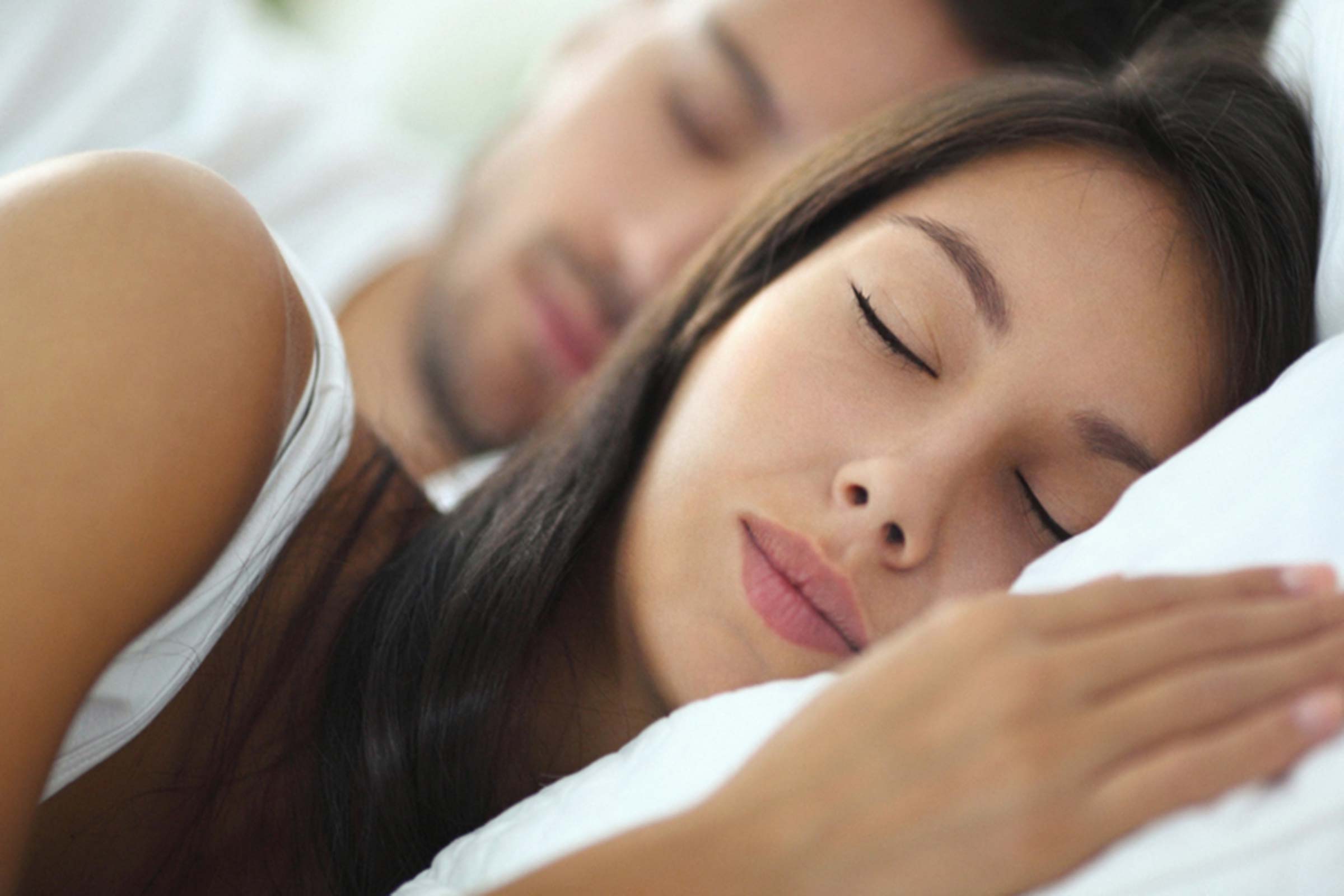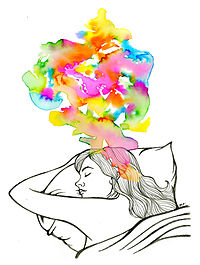Sleep

Sleeping is a natural recurring state of mind and body, characterised by altered consciousness, relatively inhibited sensory activity, inhibition of nearly all voluntary muscles and reduced interaction with surrounding. It is distinguished from wakefulness by a decreased ability to react to stimuli but is more easily reversed than the state of being comatose.

Sleep occurs in repeating periods, in which the body alternates two (2) distinct modes: these are REM and non-REM, although REM stands for ''rapid eye movement'' this sleep has many other aspects, including virtual paralysis of the body. A well know feature of sleep is the dream
An artist's creature illustration depicting REM sleep

The most pronounced physiological changes in sleep occurs in the brain. This is because the brain is significantly less energy during sleep than it does when aeake, especially during non-REM sleep. In areas with reduced activity, the brain restores its supply of adenosine triphosphate (ATP), the molecule used for short-term storage of transport of energy. In quiet waking, the brain is obliged for 20% of the body's energy. It has reduction on an independently noticeable impact on overall energy consumption.
Non-REM = non Rapid eye movement occurs first and after a transitional period is called slow-wave sleep or deep sleep. During this phade, body temperature and heart rate fall and the brain us uses less energy whilst REM also known as paradoxical sleep, a smaller portion of total sleep time if the main occasion for dream(nightmare)
Function
Restoration
The human organism physically restores itself during the sleep, healing itself and removing waste which builds up period the activity. The restoration decreases the body temperature, brain oxygen consumption, whereas during quiescent eaking.
It is further theorized that sleep helps facilitate the synthesis of molecules that help repair and protect the brain.
Memory processing
Sleep enhances memory of the brain with procedural memory benefiting from late, REM -rich sleep and explicit memory benefiting from early slow wave-rich sleep.
To release stress
Sleep helps to release stress during stress. During the waking activity it involves the brain a lot therefore for the body to relax it needs to lay down thus sleep.
Age and condition Sleep Needs
Newborns (0–3 months) 14 to 17 hours
Infants (4–11 months) 12 to 15 hours
Toddlers (1–2 years) 11 to 14 hours
Preschoolers (3–4 years) 10 to 13 hours
School-age children (5–12 years) 9 to 11 hours
Teenagers (13–17 years) 8 to 10 hours
Adults (18–64 years) 7 to 9 hours
Older Adults (65 years and over)
7 to 8 hours